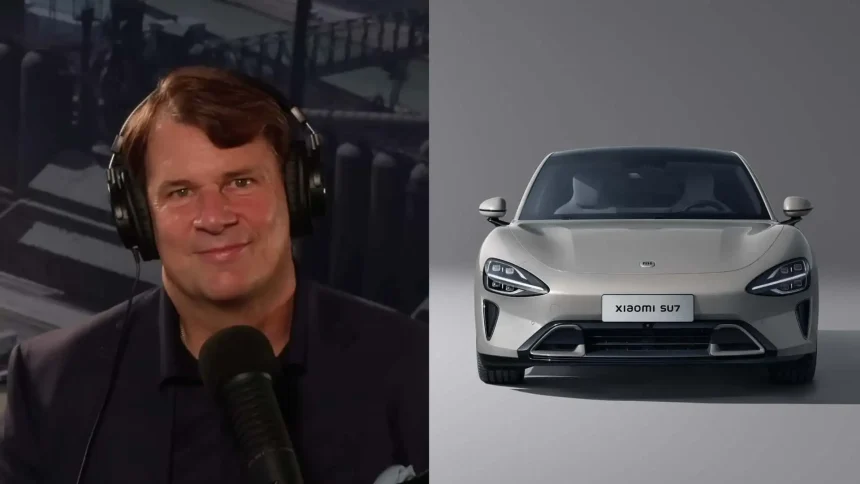CEO’s Personal Experience with the Xiaomi SU7
Ford’s CEO, Jim Farley, has expressed his fondness for the Xiaomi Speed Ultra 7 (SU7), an electric vehicle he has been driving for the past six months. During an interview with British presenter Robert Llewellyn on “The Fully Charged Podcast,” which aired on Monday, Farley stated, “I don’t like talking about the competition so much, but I drive the Xiaomi.”
Farley shared an interesting detail about how he acquired the vehicle. “We flew one from Shanghai to Chicago, and I’ve been driving it for six months now, and I don’t want to give it up,” he added.
Jim Farley’s Recent Tweet:
I try to drive everything we compete against. Have done it my whole career. Specs can tell part of a story, but you’ve got to get behind the wheel to truly understand and beat the competition.―p>— Jim Farley (@jimfarley98) October 23, 2024―a>―blockquote>
Xiaomi's Electric Vehicle Success
The Xiaomi SU7 is the company’s first electric car, available in three versions: SU7, SU7 Pro, and SU7 Max. Farley did not specify which version he owns but praised its popularity. He noted, “It's fantastic. They sell 10,000, 20,000 a month. They're sold out for six months.”
He acknowledged Xiaomi's significant impact, saying, “That is an industry juggernaut and a consumer brand that is much stronger than car companies.”
Following the podcast, Farley took to X (formerly Twitter) to elaborate on his experience. “I try to drive everything we compete against. Have done it my whole career,” he wrote. He emphasized the importance of personal experience, stating, “Specs can tell part of a story, but you've got to get behind the wheel to truly understand and beat the competition.”
Xiaomi's Financial Challenges
Despite the SU7's popularity, Xiaomi's electric vehicle division reported a substantial loss in the second quarter of the year. The company recorded an adjusted loss of $252 million. This means Xiaomi lost approximately $9,200 for each of the 27,307 SU7s sold that quarter. The base price of the SU7 is 215,900 yuan (around $30,000), and it is currently available only in China.
A Xiaomi spokesperson explained the challenges, saying the investment cost for their first EV is relatively high and will take time to balance.
Farley's comments reflect broader concerns about the growth of China's electric vehicle (EV) industry. After a trip to China in May, he described the country’s auto industry as an "existential threat."
In early 2023, Farley and Ford's Chief Financial Officer, John Lawler, tested an electric SUV made by Changan Automobile, a state-owned company. Lawler remarked, "Jim, this is nothing like before. These guys are ahead of us."
Chinese automakers continue to lead the global EV market. Recent data shows that in the first quarter of this year, Chinese brands captured 88% of the EV market in Brazil and 70% in Thailand. Competing with companies like Xiaomi will be crucial for Ford as it navigates the EV landscape.
Ford's Financial Performance and Strategy Shift
Ford has faced challenges in the EV market, reporting a significant earnings miss in the second quarter of the year. The company's earnings per share fell to $0.47, below analyst expectations of $0.68, primarily due to a $1.14 billion loss in its EV segment. Ford's third-quarter earnings report is expected on October 28.
In light of these difficulties, Ford is changing its EV strategy, opting to replace planned electric SUVs with hybrid models, which will cost the company nearly $2 billion. Consequently, Ford shares have dropped nearly 9% this year.
Jim Farley’s admiration for the Xiaomi SU7 highlights the growing competition in the electric vehicle market. As Ford adapts its strategy amid financial losses, the landscape continues to evolve, presenting both challenges and opportunities for established automakers.









